#play review
Text
Art in the times of censorship
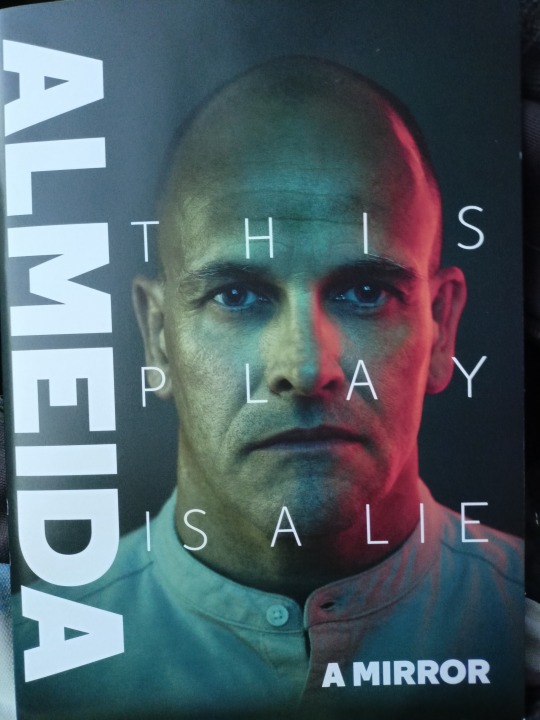
You are invited to celebrate the marriage of Leyla and Joel. Dress code in place. Time of the exchange of the vows set. Entertainment will begin shortly after.
That's the official version for this gathering. For the Ministry. And Motherland.
What's really happening is: this performance is stage without the licence from the Ministry and players commend your courage and will to participate. The risks are great. Welcome.
A mechanic writing a play - a mirror of his reality. A director of the Ministry of Culture who claims to be a patron of the arts, a benefactor. As long as the art is aligned with what the Ministry says happened. As long as it's art and not the depiction of the real world, because "a mirror is not a painting!". A young woman caught between two men. A celebrated playwright to guide the young mind.
Because no one really wants to face the reality or rather relive it for what it is (was) - especially not the ruling regime when the truth is not exactly compatible with the doctrine. Theatre is supposed to be this profound spectacle lifting spirits. It does not raise doubts in the official version of history.
The thing with truth and art? It always finds its way to the surface. Bruised and battered? Maybe. But eventually comes to light...
'A Mirror' is such a careful web, each thread reveals something different, each delivers a gut punch - with finesse and precision, I may add. Layer, after layer, digging deeper - each character searching for... well, something.
Artist versus censor. Truths and recollections of events excluding each other. And somewhere between: valuable lessons on how to write a play. How to build characters, arcs, differences between writing comedy and tragedy, character's choices and challenges, what could influence character's change. All excellent points to explore by a playwright. The very same points being picked apart by censors so the play fits the image of a great motherland.
Very Shakespearean (but careful! these books are banned!) - a play within a play exposing truths of a rotten system ('Hamlet'). The tragedy is imminent, the audience knows how the story ends and yet one hopes that this time it will be different, that it will defy the odds, gods and all the chaos between (like one would hope for star-crossed lovers, Romeo and Juliet). A quote from 'Macbeth', completely unmatched with the situation only adds to the drama.
The tension grows and grows throughout the play, until it becomes this heavy knot weighing you down.
It starts small: a little red light at the back of your head as you laugh, a part of the collective ('wedding guests'). It changes hue slightly later: it becomes a chip on your shoulder, but you're still laughing. What danger? The fourth wall doesn't exist. The boundaries are a blur. So it creeps up on you when the grand finale unravels and your heart beats a little too fast. The laughter? A bit forced by then, covering the unease.
Palms sweating as the tragedy peaks right before your eyes. The sense of urgency never leaves you and is fed by the players through 2-hour "ceremony".
Company led by excellent Jonny Lee Miller is playing on the audience's emotions like it's a Stradivarius. Tanya's Mei and Michael's Adem battle their own demons, the reality, lose and find themselves, they shine and burn bright within the tragedy presented onstage.
Sam Holcroft's 'A Mirror' is a whirwind of twists and turns, raising questions about morality, ideals and whether it's better to live on your knees or die on your feet. And how far can one go to silence rebellious voices.
---
'A Mirror' by Sam Holcroft. Directed by Jeremy Herrin.
Cast includes: Jonny Lee Miller, Tanya Reynolds, Michael Ward, Aaron Neil, Geoffrey Streatfeild, Miriam Wakeling
Performed in Almeida Theatre London (August- September 2023)
#a mirror#sam holcroft#jeremy herrin#jonny lee miller#tanya reynolds#michael ward#aaron neil#geoffrey streatfeild#miriam wakeling#play#art#theatre#play review#art vs censorship#tragedy#review#new play
5 notes
·
View notes
Text
Book Review: The Man Born to be King
Book Review: The Man Born to be King
The Man Born to Be King: A Play-Cycle on the Life of Our Lord and Saviour Jesus Christby Dorothy L. Sayers
5 out of 5 stars
This collection of radio plays follows the birth, ministry, death, and resurrection of Jesus Christ. It tells the history of Christ from the perspective of the ordinary people around Him. The Three Wise Kings visit Bethlehem, John the Baptist preaches in the wilderness,…
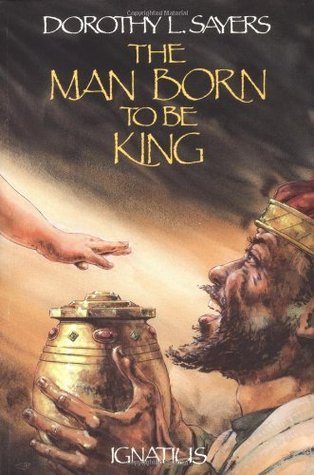
View On WordPress
#book#book review#books#christian#christian book#christian books#christian fiction#christianity#dorothy sayers#play#play review#plays#read#reading#review
2 notes
·
View notes
Text
🎭 HANSEL & GRETEL (2008)


13 Nov 2022 | Day 6/∞: Hansel & Gretel (2008) - Met Opera
Trigger warnings: cannibalism, murder, burning, near-suicide attempt, possible Holocaust implications
An operatic fairytale told in 3 kitchens. Set in a timeless, modern age, hunger is at the core of this narrative - hunger for food, hunger for the flesh of children, and hunger for vengeance. Surrealistic in design, one feels as though they are experiencing a fever dream brought on and punctuated by hunger pangs. Set designer John McFarlane's scenic paintings are reminiscent of Francis Bacon's screaming popes in their visual cruelty, and wow, I might be having nightmares tonight.
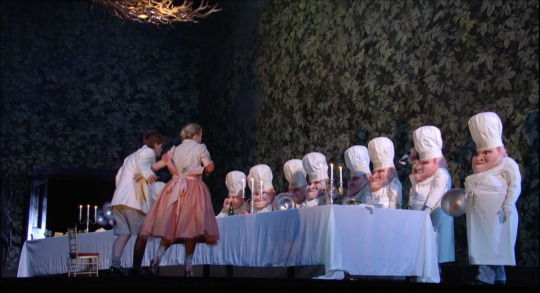
Hansel and Gretel have never been so oddly delirious, casually cruel and careless, yet incredibly childlike and naïve. They play, ignore their chores, and Hansel sneaks licks of cream. In a deviation from the original story, Hansel and Gretel's mother is not evil - she instead mistakenly sends them out in a fit of anger, yet goes with their father to find them. They pass out in the woods and entertain dreams of a fanciful feast, waited upon by a humanoid fish. Upon waking, entranced by a cake carried on a lolling tongue, they enter the witch's house - the industrial basement of a cannibalistic old woman.
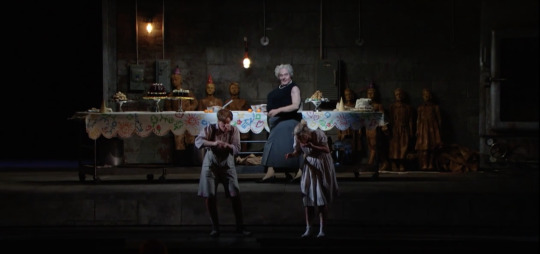
Throughout, though, what is most striking is the undercurrent of the possibility of and enacting of violence. Hansel and Gretel's mother pushes them about in anger and desperation when she finds that they have not done their chores. She takes out a bottle of pills and, completely hopeless, nearly overdoses before their father comes in with a bag full of food. Banished from the house and playing with berries in the woods, delirious with hunger, Hansel and Gretel begin to smear the red juice upon themselves, reminiscent of blood.
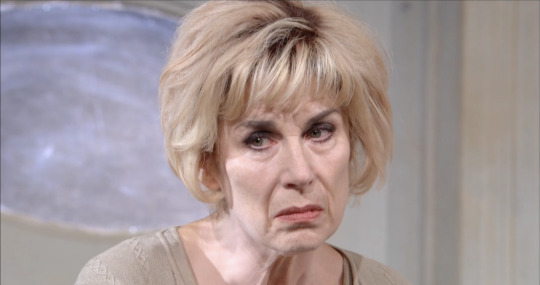

In perhaps the most striking and horrific ending, the children shove the witch into the oven - and Gretel smears a cream moustache upon Hansel's upper lip, a perfect Hitler moustache. Take a moment here to consider a few things: one, that the classic take on witches is anti-Semitic in origin, particularly their 'large noses'; two, that the witch has been burning children up and eating them for no clear reason; three, that witches are seen as horrific and live out in the woods, othered by society; four, that the oven converts human flesh into gingerbread, and the very last scene is of children rejoicing as Hansel and Gretel prepare to take bites out of the witch's appendages.

Who is who specifically is unclear - are Hansel and Gretel Hitlerian youth, poor and made to believe in ideology that the Jews are stealing all their money? Is the witch the Holocaust itself, cooking and eating innocent children in a room eerily reminiscent of a gas chamber? Does the cycle of violence continue - do Hansel and Gretel gain a taste for human flesh, put through the oven?
What kind of hunger are we talking about here? Hunger for violence, perhaps. A kind of hunger that creates more hunger.
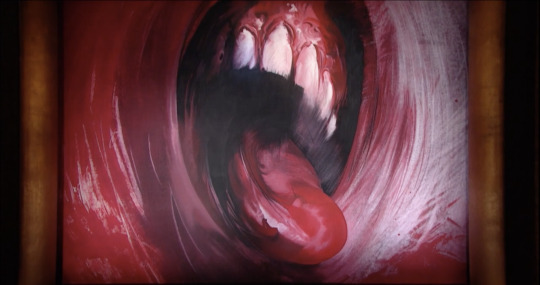
#opera#opera review#hansel and gretel#john mcfarlane#met opera#theatre review#theater#theatre#play review#play#engelbert humperdinck#set design#antisemitism#the metropolitan opera#hansel & gretel#grimm brothers#fairytale#grimm fairy tales#film#film review
4 notes
·
View notes
Text
Shed: Exploded View, by Phoebe Eclair-Powell
A review
Date of viewing: 19/02/24 (Mon 19 feb 2024)
Place of viewing: Royal exchange theatre
Story rating: ⭐️⭐️⭐️
Cast rating: ⭐️⭐️⭐️⭐️⭐️
Design rating: ⭐️⭐️⭐️⭐️
Heavy trigger warnings for discussions and depictions of domestic violence, child loss, depictions of dementia, depictions of grief, allusions to eating disorders, allusions to mental health issues and sexist language.
Shed: Exploded view is a masterclass in theatre that I cannot in good faith recommend to anyone. Following the story of Lil (Haley Carmichael), Abi (Norah Lopez Holden), Naomi (Lizzy Watts) and their partners, Tony (Wil Johnson), Frank (Jason Hughs) and Mark (Michael Workéyè) it is an awareness piece on relationships and domestic violence. Spoilers ahead, trigger warnings will apply in part to this review.
I found the most pleasant story to be that of Lil and Tony, an older couple who married in 1995, as they navigate their relationship, with both of them being married before, as well as Lil’s frustration as Tony loses himself to dementia. I found their relationship to be sweet, compelling and heartbreaking, Lil especially was amazingly played, Haley Carmichael did a fantastic job, however I feel the story does hit one of its sticking points here that keeps getting hit throughout all 3 of the parallel stories, it plays it’s dark themes far to much for shock value, when Lil shouts in frustration at Tony who doesn’t understand why he can’t leave the house (the play jumps around in time from between 1995 and “now” (2024) so parts are set during lockdown), it is shocking and distressing to watch, however as a tragedy, it misses the emotional catharsis, as well as this, it is mentioned that before Tony, Lil was married to an abusive man, however this plot point is mostly brushed over (being mentioned only a couple of times, most notably in Lil’s final monologue (which was brilliant btw, I love this cast so much)), serving mostly to act as a parallel to Abi’s abuse and eventual murder at the hands of Mark, this left it feeling like there was missed potential in Lil’s story, however as a whole she was a good character.
The second plotline follows Naomi and Frank, a middle aged couple who married in 1995 and encountered Lil and Frank on their honeymoon and later go on to have a daughter- Abi. Naomi is by far the stand out character of the show, with the best of the stage time being given to developing her relationship with Abi. Overall, Naomi’s relationships with both Abi and Frank feel realistic, however it suffers from a similar problem, when Naomi performs her final monologue at the end of the play (another brilliant monologue, I find myself wondering if this play would’ve been better if viewed as a collection of disconnected monologues), the energy stays very heightened, like the story is tripping over itself to make you feel something, to the point where it only leaves you feeling overwhelmed. Frank was very well played and his relationship with Naomi was believable to how a marriage when one of the partners is disloyal (however as I have never been in a relationship, I cannot attest to that).
Abi and Mark’s plotline is where the story trips over its own feet the most, from the starting monologue, the story foreshadows that Abi is going to be violently murdered, so when she meets Mark at university and has dubiously consensual sex with him, it becomes quite obvious that it will be by his hand. The play goes out of its way to show the good times that Abi and Mark have in their relationship, showing that abusive partners are not always the stereotype of abuse, however these moments can sometimes fall a bit short, as it shows them seemingly only having nice couple times, then takes a drastic turn near the end, the idea was good but the execution was a bit heavy handed. Abi and Naomi’s relationship is by far my favourite, their moments are some of the only reprieve the audience gets from the constant distress the characters are in, however the play does seem to want to portray Abi as having some resentment towards Naomi, but this does come across as teenage angst. A major area Abi’s characterisation falls a little bit flat for me is her past history of eating disorders, while Mark does make fun of her for being fat and we do have one scene of her running up to her room as a child (followed by Naomi and Frank talking about food and a doctor), it feels glossed over in a similar way to Lil’s abusive ex, like the story expects us to see this in Abi’s character, without actually having her react in a way that would be consistent with this.
In conclusion, Shed: Exploded view is a beautiful play with brilliant actors that acts as a masterclass of shocking your audience, however the characterisation can sometimes fall short and the story lacks the emotional catharsis it needs to be a truly compelling tragedy, I think it would be interesting to watch it again, to see if it would be different when it can’t shock me.
#Shed: Exploded View#The royal exchange#The royal exchange theatre#Theatre#Manchester#tragedy#review#theatre review#play review
0 notes
Text
My ★★★ review of Spirited Away: Live on Stage (2022) on Letterboxd:
#spirited away#spirited away: live on stage#spirited away play#spirited away musical#movie review#film review#play review#letterboxd
1 note
·
View note
Text
Sophocles: The Three Theban Plays; Antigone
- Chorus, lines 1466-1470 (Greek Version: 1347-1353)
"Wisdom is by far the greatest part of joy, and reverence towards the Gods must be safeguarded. The mighty words of the proud are paid in full with mighty blows of fate, and at long last those blows will teach us wisdom."
#affirm and persist#affirmations#affirmdaily#affirmyourlife#daily affirmations#happiness#positive#positivity#affirmyourself#aesthetic#sophocles#playwriting#antigone#play review
0 notes
Text
Last week, I saw one of the most incredible, powerful and a very impactful play called Prima Facie. I thought the play told a deep story, touching on important themes such as raising awareness for sexual abuse. Overall, the play was filled with dark humor at times and intense serious moments which made the audience go on an emotional roller coaster.
If you are a theater fan, I highly recommend this play. You can read more about this in my newest blog post — link in bio.
#prima facie#actual play#theater#theatre kid#theatre#national theatre#personal blog#play review#blog post#new blog post#blogger#new blog#powerful#impactful#awareness#raising awareness
0 notes
Text
The Importance of Being Earnest
As a part of my Scene Study class, I had to read "The Importance of Being Earnest" by Oscar Wilde for the first time, and can I say I was pleasantly surprised! The sheer hilarity of everything in that play was baffling and so wildly entertaining!
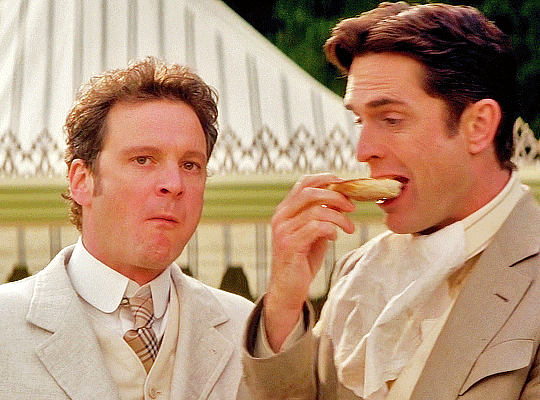
Spoilers ahead (can you spoil a play that's been out for over a century?)
Can we just talk about the fact that these two men were both pretending to be called Earnest for whatever reason? Earnest! A name that literally means being truthful, both of which were not being. Then the twist that they were, in fact, telling the truth! At least Jack. I'm pretty sure Algernon was never truthful, but he was delightful! I, too, would stuff my face with muffins when under duress if given the opportunity to.
Then you get to the two younger female characters and their reliance on being with these boys. And the rollercoaster of their relationship! You could definitely look at the two characters and point out how wishy-washy they are about their morals with the guys. Still, it's just pure comedy how they promised to stay silent and ignore them after the truth was revealed, and then they immediately talked with the boys. Amazing timing; they don't make things like this anymore.
Then we get to Jack's past. Like, he was left in a handbag, okay sure, but then it was revealed that he was mistakenly placed in there because Miss Prism thought he was her manuscript. Like babies move and don't feel like stacks of paper (in my experience, at least). How do you make a mistake like that! It's absurd, it's hilarious, and I want more!
Of course, I must bring up the quick tangent about them being truthful. Because they go through this whole reveal, it shows that Jack was never really lying. He was seeing his brother in town; his name was Earnest, but he did not know that. Truth can be defined as the validity of a statement (how it holds up with reality), but it is a mere subjective value. We place our own truth on statements. Yes, there are objectively true statements (the sky is blue, 1+1=2, etc.), but Jack thought he was lying. He knew he was deceiving someone. He did not know that what he was saying was actually true. Therefore, he was never telling the truth. He just got lucky.
These are just my initial thoughts on this play. I had to tell someone. I'm going to be working on it in class, though, and choosing a character and some scenes to delve into, and I might come back with more thoughts on that (no promises, you should know better than the expectation from me). For now, I'm gonna urge everyone to read this play. If you google the name with pdf, a free version comes up; if not, here's the link to the one I read. http://www.jacneed.com/ASYD/Earnest/the_importance_of_being_earnest.pdf
Please check it out and let me know what you think. It is a quick read, a dedicated hour or so. Also, let me know any adaptations or interpretations of characters you like; I would love to read/watch it!
*side note, in finding the gif for this post, I realized there is a movie adaptation and yes, I will be watching it!
1 note
·
View note
Text
Gielgud, Burton, Hamlet and Taylor, too!
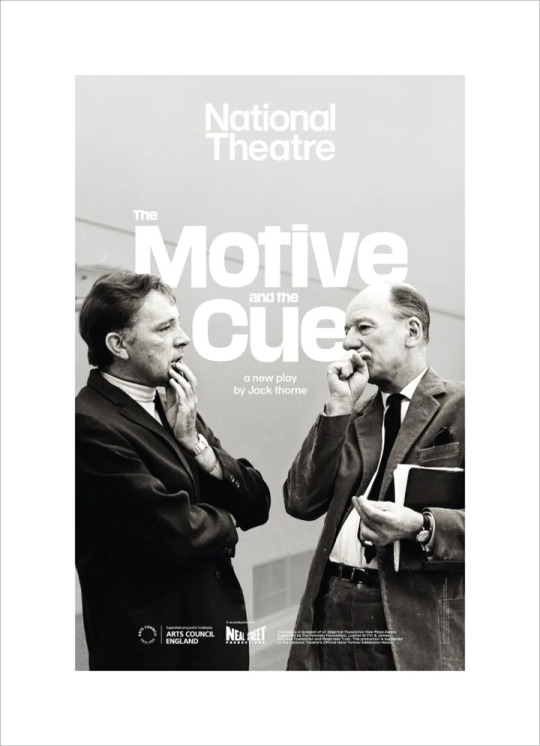
The clash of the titans: Gielgud and Burton. Theatre versus film. Art versus stardom. Classic versus modern. Veterans in their craft Gielgud and Burton try to reveal yet another side of Shakespeare's 'Hamlet' and show what they're made of.
Egoes and artistic differences start to dismantle the play before if fully becomes the play – at the rehearsals tension is tangible, to say the least, when the director (Gielgud) and the actor (Burton) don't see eye to eye when it comes to the version of 'Hamlet' they intend to produce.
Chaos expands with each day, devouring good intentions, bad tempers and even worse habits don't mix very well and the pile of wrongs threaten to bury everybody under it.
Fears and insecurities threaten to ruin the show, the vision and relationships. But it may be the fear and insecurity that will be its saving grace, where the friction becomes the edge and the edge produces the defining moment. The motive and the cue.
The company delivers an exceptional show (along with the deep dive into 'Hamlet', perhaps one you didn't know you needed, yet fascinatingly insightful). The chemistry between the actors is undeniable, Gatiss' Gielgud is awkward, seeping with knowledge about Shakespear and rigid about his vision, Flynn's Burton is changeable, unruly, larger than life, yet drowning in self-doubt star. You can't take eyes off of him, he's magnetic, mesmerising and every encounter with Gielgud provides sparks. Tuppence's Taylor might seem underperformed at first (even though there's no doubt that eyes of everyone gathered in the 'room' are indeed fixed on her as she hosts the parties for the company), but there is a very good reason why she's actually on the backseat of that ride. To paraphrase – she's happy to serve Richard for once and support him. She's a broker of peace, she's providing entertainment, she is his stimulus. But it's his time to shine.
Stage design is a beautiful, intricate clockwork: different 'rooms' appearing effortlessly within curtain's drop and raise. A paradox really, but classic and modern solutions working perfectly in sync together (machinery of stage design, décor, journal's entries projected on the black curtains).
Sam Mendes directs Mark Gatiss as Gielgud, Johnny Flynn as Burton and Tuppence Middleton as Taylor in this funny, brilliant, surprising play by Jack Thorne posing the question of art, stardom, revisiting classics and maybe even the essence of the theatre itself.
Inspired by 'Letters from an Actor' by William Redfield and 'John Gielgud Directs Richard Burton in Hamlet' by Richard L. Stern 'The Motive and the Cue' offers a look into rehearsals, an insight into the process and deep analysis of well known classic.
–
The Motive and The Cue.
Dir. Sam Mendes, play by Jack Thorne, cast includes: Mark Gatiss, Johnny Flynn, Tuppence Middleton.
In Lyttelton Theatre (National Theatre) until 15 July '23.
[photo: National Theatre]
#the motive and the cue#sam mendes#jack thorne#national theatre#play#theatre play#theatre#mark gatiss#johnny flynn#tuppence middleton#john gielgud#richard burton#elisabeth taylor#hamlet#shakespeare#william shakespeare#play review#letters from an actor#william redfield#john gielgud directs richard burton in hamlet#richard l. stern
1 note
·
View note
Quote
In a large white room, a woman and a man are talking to each other. He is the one who starts the conversation. She listens, attentive, and answers him with a second monologue. They talk about their separation, talk about before and now. It is precisely in this movement of distance that the tension of relationships, the strangeness of recognition, the disturbance of discrepancy are played out. To the question: "Who do we love when we love?" Pascal Rambert does not provide a ready-made answer. It circulates in possibilities. He does not refuse the clichés used, at least once, by those who separate, who seek the reasons for falling out of love, who rewrite memories, embellish them, before destroying everything with a few murderous phrases. The uninterrupted river of words, the questions-answers that we chain, the breath blocked, in a sort of marathon between fear and liberation: it is there, in the heart of this painful moment, that Pascal Rambert installs us, not fearing to disturb, to create doubt, to toss around in the twists and turns of a story that leads inexorably to rupture and, perhaps, to the adventure of another life. In the brutality of an omnipresent verb, in the incredible rigor of cold and murderous writing, a merciless fight unfolds. Stanislas attacks and Audrey has to fight against the obliteration he wants to impose on her. They are on equal terms, but do not use them in the same way. There is the masculine and the feminine. There are two looks, two silences, two words to express the violence of a dying love.
Jean-François Perrier about the play Love’s End
0 notes
Text
Good, David Tennant, a review
Last night i saw a play called Good with David Tennant in it. Alot of people commenting on how it was difficult to follow which I get but I got it. With 3 main actors (and behind the scenes ensemble) the entire thing until the end where the ensemble are seen. And they gave you a sticker to go over your phoen camera SO NO PICTURES!!
My review: It was good so 3 actors portraying like 7 characters or so, Tennant always on his role of the dr and the two others playing other characters. Stark bleak grey background to represent an oppressive Germany and hitters idealistic architecture. It was a decent into what being good is and in the pursuit of good if you ever truly remain good when trying to do he best for the ones you love, if the ends justify the means as a normal man, a German literature lecturer at the university struggles with maintaining his only friendship with his best friend, a jew where his friend loves Germany but realises he needs to leave but the Dr's refusal to let him go is as he believes the good in people will prevail and if his misguided trust in good over evil makes him question all his ethics and morals before being cast into a new hell of his making by joining the SS.
Rising the ranks in the SS for the Dr's stance on euthanasia stemming from his blind mother with dementia. Is a life even a life if it can't control its bladder? How would you euthanase people without causing them too much distress or without them knowing what is going to happen? The dr has the answer, embedding it as part if a daily routine, e.g. having a bath and then being euthanased.
The staging was very minimalistic and bleak as already mentioned with one set throughout but the set was amazing with a hole in the wall opening spilling out banned books and then a panel being moved to reveal a fire to portray the book brings that happened in Germany which were a central theme throughout the play as the dr is a dr of literature and books are his life, having to organise a book burning at the University with him orchestrating it going against all his morals he must say it doesn't mean anything, but of course it does. This is the point where his moral lines become blurred and the decent into becoming a full fledged nazi ss officer takes hold.
Riddled with the undertone of free will, with the Dr's secret escape being bands and hearing bands he likes which may be obscure to us the watcher but to him it demonstrates his free will and that he is not just another soldier in hitters army. With bands being a huge feature at the start of the play when learning about who the dr is and then diminishing throughout the rest of the play showing he has been taken in by what the nazis say and his capitalist world is falling, failing and his own ideals and morals with it, with the lack of the bands.
Freewill, morals, ethics are questioning into what makes a good man do bad things and if it is truly his fault or the hellscape making of society.
The ending was somewhat lacking as you know the end is coming but actually makes alot of sense with the dr being given a 'prestigious' position at Autshwitz where the play ends with the climax of a live band on stage bringing bands back into the Dr's life, they have been slowly returning to show he is regaining his will and morals after 'the night of shattered glass' kristallnacht. The difference instead of this band being played on a speaker or be in the Dr's he'd this band is a real band made up of Jewish prisoners. With the one set opening up to reveal the Jewish prisoners in Autshwitz with amazing set production.
Tldr: good I'd a fucking amazing play with deep moral and ethical issues addressed from the view point of a good man who likes the Jews but becomes a nazi to better his family as David Tennant plays a German literature lecturer who becomes an ss officer as he doesn't think Hitler will last and the Jews will all be fine as Hitler will be stopped or leave Germany peacefully if it all gets to much as he believes in good. But does good exist at all?
#good#harold printer theater#david tennant#play#theatre#lonon#moral#ethic#review#Germany#theatre review#play review
1 note
·
View note
Text
Holiday Sale! All Digital Items 80% Off (Or More!)
Holiday Sale! All Digital Items 80% Off (Or More!)
My Kofi shop features entirely digital downloads as pdfs. Now through the holiday season, everything is on sale for 80% off or more! Once you purchase a pdf, you can download it and then provide it to your intended recipient however you chose. Send an email, send a DropBox link, or go old school and load up a usb drive with files and gift that. An ideal stocking stuffer.
I have 15 book club…

View On WordPress
#80% off#advent#book club#book club guide#christmas#cross-stitch#digital download#hanukkah#homework help#How To#huge sale#kwanzaa#link#new year&039;s#pattern#play review#sale#stitching#stocking stuffer#usb
0 notes
Text
Faceless 🧕🏻
Faceless - Selina Fillinger. 2018.
If someone asked me what the most profound or thought provoking play I ever read was, I would say Faceless.
Faceless grapples hard questions head on and leaves the audience's head spinning with quandaries. Fillinger excels at posing questions, allowing audience members to form opinions, then presenting an alternative perspective that shakes the audience's previously formed opinion.
Who is to blame for radicalism? Is the fault entirely on the recruiters targeting young kids? Should Susie be blamed for her decision to join ISIS? Is she a child in distress who was taken advantage of or is that just an easy defense for a white person becoming radicalized? Should people be held accountable after being brainwashed? Is Susie's dad at fault for not stepping in? Is there anything he could've done to protect her from internet predators? Will punishing groomed kids even do anything to stop ISIS? What can we do to save our kids from online predators? How far can vulnerability after loss be stretched as an excuse?
Faceless deals heavily with themes of damaged people doing terrible things. A girl experiences brutal loss and isolation and subsequently joins a violent terrorist group. A father watches helplessly as his daughter (who is everything to him) is taken away, which leads him to hunt down the attorney who humiliated him and caused his daughter to attempt suicide. A woman detaches herself so far from her family and plunges too deep into her work, leading her to destroy a father in order to win a case.
Additionally, Faceless does an excellent job of creating dimension in the characters which greatly adds to the potency of its quandaries. Susie is not a pathetic child who just needs therapy and a hug. She is an teenager who was groomed online and subsequently became a devout follower of a dangerous terrorist organization. Her belief in Islam is not in question, which makes it harder for the audience to justify her actions. She is brainwashed, but to a point where the line of fault is blurred between her father, her groomer, and herself.
The name of the play adds immense depth to the themes explored in Faceless. There is no face of terrorism. There is no face of hate. But when you are face-to-face with someone planning to commit dangerous acts of terrorism and who is filled with the hate that the world tries to eradicate, what is the procedure? How does the history of the face behind hateful acts play into the response to such acts? Does Susie's her mother's death leaving her vulnerable to grooming excuse the catastrophic repercussions of actions she was prepared to commit?
It is a crime this play has not been adapted to film. A director that can maintain the potency of the script while adapting to the screen could easily sweep the Academy Awards.
Overall rating: ⭐⭐⭐⭐⭐
1 note
·
View note
Text
Roku's "Heathers" -- A Bit Off-Key
Check out my review of Roku's Heathers: The Musical.
I got into watching Heathers through clips and various poorly streamed YouTube uploads. I had my favorite versions and I had preferred traits for the characters. Veronica needed to be loud and dramatic, Heather M had to be smaller and more high pitched, Heather C had to be way over the top, and JD needed to be tall, beautiful, and have a tone to his voice that felt bad boy. Many adaptations had…
View On WordPress
1 note
·
View note
Text

“So I went into the studio. And it was very awkward, as I made sounds like 'mmm' and 'ahh'. And then I kissed my hand a whole lot. So. You think about that. You mull that over as you run around, you little horny perverts, with your little perverted roleplays. You randy bastards. You think of me.”
also:


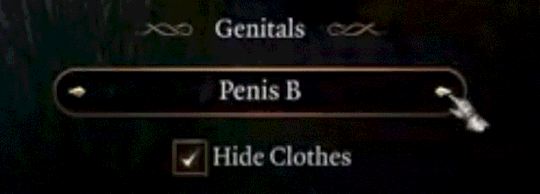
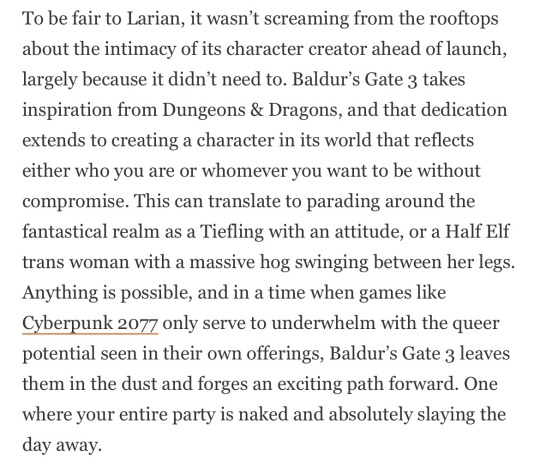
#the chemistry he has with his hand#guess who bought baldur’s gate 3 and was looking for reviews and then went down the alex jordan tiktok blackhole#i think i watched his entire feed……#anyway……… what a voice……………..#his voice + suwabe junichi’s voice should have babies together#@ yasmine!!! have you started playing it?? have you seen That Scene?#autoplay warning#baldur’s gate 3
2K notes
·
View notes
Text
Classic Play Review: Lover's Vows
Classic Play Review: Lover’s Vows
Lover’s Vowsby Elizabeth Inchbald
3 out of 5 stars
This play follows the sad fortunes of Agatha, who is forced to beg on the street. Her son, Frederick, returns from the army, and she confesses to her son that he is illegitimate. He vows to find his true father, the Baron Wildenhaim. Agatha is taken ill, and some kindly cottagers welcome her into their home, while Frederick wanders the…

View On WordPress
#book#book review#books#classic#classic book#classic books#classic literature#classic play#classic review#classics#play#play review#read#reading#review#theater play
0 notes